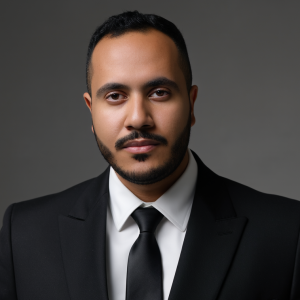Dubai’s Journey to Becoming a Financial Giant
Dubai’s rise as the Middle East’s finance capital is a story of vision, ambition, and calculated risk-taking. Over the past three decades, the city transformed from a regional trading hub into a global financial powerhouse. With the creation of the Dubai International Financial Centre (DIFC), world-class infrastructure, and a business-friendly regulatory environment, it attracted top-tier banks, investment firms, and fintech companies from across the globe.
For years, Dubai was the undisputed leader in the region’s financial landscape, outpacing competitors in attracting international capital and offering a platform for Middle Eastern businesses to connect with global markets. But as the world changes, the question arises—can it hold onto that title?
The Competition Is Catching Up
Dubai is no longer the only city vying for the title of the Middle East’s financial hub. Riyadh, Doha, and even Abu Dhabi are stepping up their game, investing heavily in financial infrastructure, creating competitive tax incentives, and luring top talent. Saudi Arabia’s Vision 2030 is especially ambitious, with its push to transform Riyadh into a global business destination and attract multinational headquarters.

Doha has also made strategic moves, leveraging its energy wealth to position itself as an investment hub. Meanwhile, Abu Dhabi has focused on creating a niche in asset management and sovereign wealth fund investments. The playing field is becoming more competitive, and Dubai can no longer rely solely on its head start.
Dubai’s Strengths That Keep It Ahead
Despite growing competition, Dubai still has several strengths that make it an attractive financial center. Its strategic location between East and West remains a huge advantage, allowing businesses to operate across multiple time zones efficiently. The city’s infrastructure is world-class, with seamless connectivity, modern office spaces, and a vibrant urban lifestyle that appeals to global talent.

The DIFC remains a cornerstone of Dubai’s financial ecosystem, with a robust legal system based on common law, regulatory transparency, and a thriving network of over 5,000 active companies. This environment gives investors confidence that their business interests will be protected and supported.
Dubai’s tax incentives, such as zero income tax for individuals and competitive corporate tax policies, also continue to attract entrepreneurs and multinational firms seeking a stable, business-friendly environment.
Innovation and the Push for Digital Finance
One of Dubai’s biggest moves to secure its financial future has been its embrace of innovation. The city has positioned itself as a hub for fintech, blockchain, and digital banking, aiming to lead the region in the financial technologies of tomorrow. Initiatives like the Dubai Blockchain Strategy and the DIFC Innovation Hub are designed to attract startups and entrepreneurs working on cutting-edge financial solutions.
Digital transformation is not just a buzzword in Dubai—it is part of the government’s vision. With a young, tech-savvy population and strong investment in artificial intelligence, the city aims to be at the forefront of the digital economy, which is increasingly intertwined with finance.
The Role of Talent and Global Connectivity
Finance is not just about money—it’s about people. Dubai’s diverse, multicultural workforce gives it a significant advantage in attracting and retaining top talent. Professionals from around the world choose Dubai for its quality of life, safety, and global exposure.
The city’s world-class airports and connectivity also make it easy for business leaders to travel, network, and expand their operations globally. This accessibility, combined with the city’s cosmopolitan lifestyle, keeps Dubai appealing to high-caliber professionals in the financial sector.
Challenges Dubai Must Overcome
Despite its strengths, Dubai faces challenges that could affect its position as the financial leader of the Middle East. The rising competition from neighboring capitals is a major factor. Additionally, global economic uncertainties, fluctuating oil prices, and shifts in investment flows could influence how international firms choose their regional bases.
There’s also the matter of regulatory agility. While Dubai has been praised for its business-friendly policies, it will need to continuously adapt to changing global financial regulations and trends. Maintaining a delicate balance between innovation and compliance will be critical.
Opportunities in Green and Sustainable Finance
Another promising path for Dubai lies in green finance and sustainability-focused investments. As the world transitions toward cleaner energy and environmentally conscious business practices, financial hubs that lead in green bonds, ESG investments, and climate-focused financing will gain a significant advantage.
Dubai has already hosted major global events like the UN Climate Change Conference, signaling its willingness to be part of the sustainability conversation. By positioning itself as a leader in green finance, it could tap into one of the fastest-growing sectors in the global economy.
The Future of Dubai as a Financial Hub
Dubai’s future as the Middle East’s finance capital will depend on its ability to innovate faster than its competitors while leveraging its existing strengths. It cannot rest on its past successes—it must actively adapt to global trends, attract the next generation of financial leaders, and offer unique value that other cities cannot match.
With its visionary leadership, strategic location, and commitment to infrastructure and innovation, Dubai still has a strong chance of keeping its crown. However, it will be a high-stakes race where adaptability, creativity, and resilience determine the winner.
A Crown Worth Defending
The title of the Middle East’s finance capital is not just a matter of prestige—it represents billions in investment, influence in global markets, and the ability to shape the region’s economic future. For Dubai, defending this crown means pushing boundaries, staying ahead of the curve, and continuing to inspire confidence among global investors.
Whether it can maintain its position will depend on how well it responds to the challenges ahead. But if history is any guide, Dubai has never shied away from ambitious goals—and this race to remain number one might just be its most important yet.
Do follow UAE Stories on Instagram
Dubai’s Bold Crackdown Seizes Millions of Fake Cigarettes and Cosmetics













